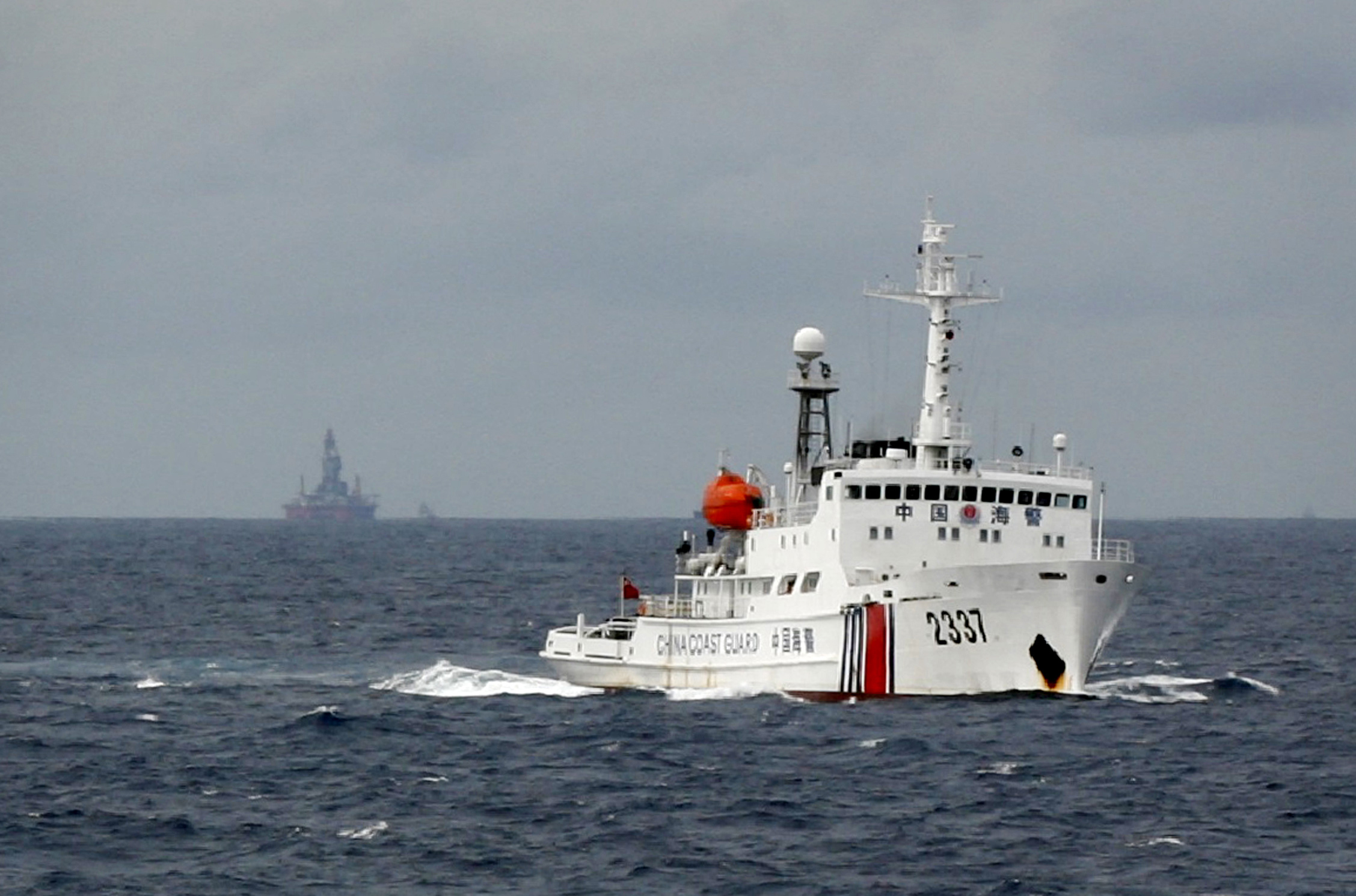Why China's island building is so foreboding
A land grab is a land grab — even if it happens at sea

A free daily email with the biggest news stories of the day – and the best features from TheWeek.com
You are now subscribed
Your newsletter sign-up was successful
Over the past six months, China has gotten a little bit bigger. China's expansion, which has amounted to less than two square miles of new land, is making waves not for how big it is, but where it is.
Chinese engineers, with the help of barges and dredging machines, have been enlarging tiny reefs, sand spits, and islets in the South China Sea that Beijing claims as its own. China is busy building harbor facilities and airstrips on these new islands, ostensibly with civil purposes, but with a decidedly military bent.
Meanwhile, China's neighbors are anything but pleased. For many, the land reclamation amounts to someone else building in their front yard, on territory they consider their own.
The Week
Escape your echo chamber. Get the facts behind the news, plus analysis from multiple perspectives.

Sign up for The Week's Free Newsletters
From our morning news briefing to a weekly Good News Newsletter, get the best of The Week delivered directly to your inbox.
From our morning news briefing to a weekly Good News Newsletter, get the best of The Week delivered directly to your inbox.
In 2009, China published the so-called "nine dash line": a line on a map submitted to the United Nations that demarcated Chinese territory in the South China Sea. China bases this claim on historical maps and statements going back as far as the third century A.D.
All in all, the nine-dash line claims 1.35 million square miles, approximately 90 percent, of the South China Sea as Chinese territory. Much of this territorial grab, in addition to claiming what were previously international waters, conflicts with competing territorial claims from Taiwan, Vietnam, the Philippines, Malaysia, Indonesia, Singapore, and Brunei.
China claims that "relevant disputes" in the South China Sea should be resolved through consultation and negotiation with other countries. At the same time however, it believes that Chinese sovereignty over the Nansha (Spratly) islands is "indisputable"… and thus irrelevant.
You can see where this is going.
A free daily email with the biggest news stories of the day – and the best features from TheWeek.com
Last year, the Chinese government upped the ante and began a dredging program to expand and enlarge slivers of land in the South China Sea. Satellite imagery has documented extraordinary progress at a number of islands. China has claimed the islands — and facilities on them — are for largely civil purposes, including meteorology, search and rescue, and environmental and fisheries protection.
Outside observers are skeptical. Dredging and construction on Fiery Cross Reef is clearly pointing to an airstrip 3,000 meters long — a third longer than required for most aircraft, but in line with the average People's Liberation Army Air Force airfield. At least two other locations are being expanded to host airstrips of similar sizes.
According to the Philippine government, China's landfill projects have destroyed more than 120 hectares of coral reefs, and the economic damage to nearby fisheries runs to $100 million dollars annually. If we take China's statements at face value, it seems unusual to destroy fisheries habitat in order to protect it.
A more likely explanation for Beijing's behavior is that it is taking the South China Sea to provide a security buffer for mainland China. This also includes a safe haven for China's ballistic missile submarines, armed with nuclear missiles, based at nearby Hainan Island.
China is using a tactic in the South China Sea known as "salami slicing": undertaking a series of minor provocations that, by themselves, aren't enough to start a major crisis or even a war. Each "slice" inches China a little closer to the goal, until the salami is gone.
By any standard, China's behavior in the South China Sea is unacceptable. China has seized the initiative and is using everything short of force to get what it wants. This puts neighbors and competitors in a bind: How do you respond without escalating the situation?
There must be a response, even if it does escalate tensions. It must be coordinated among China's affected neighbors and backed up by major powers such as India, Japan, and the United States. A united front would stiffen the backbone of weaker states and make it more difficult for China to retaliate against any single nation.
China's island-building in the South China Sea isn't reason enough to start a war, but it's an example of a high-handedness attitude and arrogance towards others that — if successful — leads to more belligerent behavior down the road. Beijing needs to learn that there are consequences to unilateral action, and it's better to play by the rules than bend them.
Kyle Mizokami is a freelance writer whose work has appeared in The Daily Beast, TheAtlantic.com, The Diplomat, and The National Interest. He lives in San Francisco.